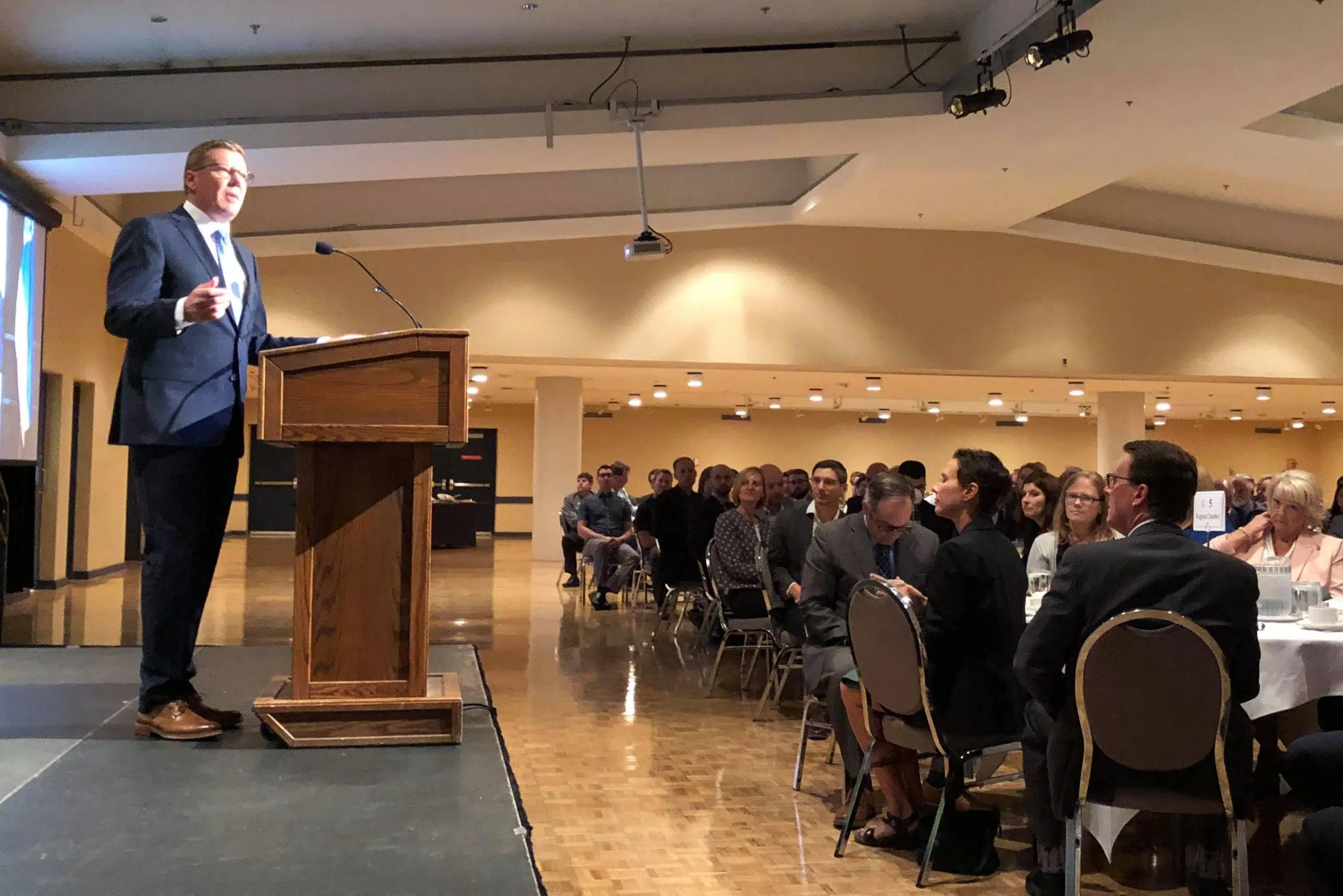Heading into the federal election, Premier Scott Moe is asking what kind of Canada its citizens want.
While speaking at a Regina and District Chamber of Commerce luncheon on Tuesday, Moe said Canada is at a crossroads and Canadians have the opportunity to come together to determine our direction over the next four years.
“We need to decide what road we are going to travel, the road we’re on now, where one region is pitted against another, where provincial dialogue often descends into bickering over the interests of one region versus another, or do we want to chart a new course toward a more co-operative and a more constructive Canada where the diversity and strength of each of our regions are not only acknowledged but they are leveraged and celebrated?” said Moe.
During his speech, the premier said Canadians should be proud of industries that provide wealth to Canadians, whether that be the oil and gas industry in the prairies, the auto industry in Ontario, the aerospace industry in Quebec or the forestry industry in British Columbia.
“When in Canada did we stop being proud of the economic prosperity of all Canadian provinces collectively?” Moe asked.
He said in this election, Canadians are looking for leadership that is driven by a spirit of co-operation, acknowledging the partners in Confederation and willing to put aside short-term partisan gain to work with and support those partners.
Moe pointed to past governments, praising the Stephen Harper government for respecting provincial jurisdiction and standing up for Canadian values around the world and the Brian Mulroney government which negotiated NAFTA with the U.S. and “freed our energy sector from the shackles of the national energy program.”
He even had positive words for the Paul Martin and Jean Chretien Liberal governments and his appreciation for the Team Canada concept, which worked with provinces and the business community to advance Canada’s trade interest worldwide.
“We had Liberal governments that actually promoted growth in our energy, our mining and our industrial sectors,” Moe added.
He believes those past prime ministers provided leadership where they brought the provinces together when necessary. He did not have any kind words for the current Liberal leader.
“We haven’t seen that over the last few years. I mentioned the carbon tax which is really at the centre of a suite of federal policies that are problematic to certain areas of this nation,” said Moe.
When Moe became leader of the Saskatchewan Party in January 2018, he launched his fight against the carbon tax, calling out Justin Trudeau by saying, “If you were wondering how far I will go, just watch me.”
Asked Tuesday if he had set a combative, unco-operative tone, Moe said, “The tone was set when you had a prime minister, in the last election, that ran on working collaboratively with provinces when it comes to climate change.
“While environment ministers met in Montreal, you had a prime minister that ditched that collaborative effort, rose in the House of Commons and announced that he would impose a carbon tax on all Canadians.”
During his speech on Tuesday, Moe slammed the federal carbon tax once again, calling it “a gross violation of provincial jurisdiction,” despite being ruled constitutional in a split decision by the Saskatchewan Court of Appeal in May. The Supreme Court of Canada is set to hear the case after the federal election.
Also in attendance at the luncheon was provincial NDP Leader Ryan Meili, who called Moe’s speech on national unity “strange.”
“It seemed to be more threatening national unity than actually proposing any particular road forward. It seemed to be about a threat to national unity if Mr. Moe and his party don’t get their way,” said Meili.
He said Moe’s speech lacked a focus on the people and issues of Saskatchewan, including health care, education and the PST on construction projects.
“It seemed that once again, Premier Moe was playing politics, pointing fingers elsewhere and not really concerned with the people of Saskatchewan,” said Meili. “I think he should stop spending so much time on federal politics and start doing his own job.”











